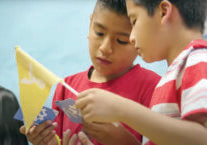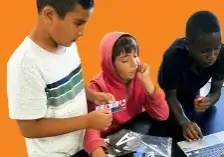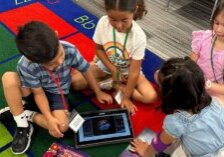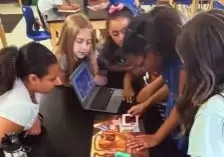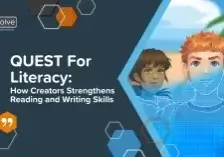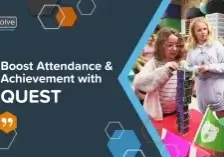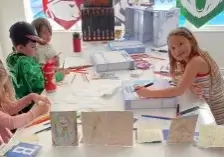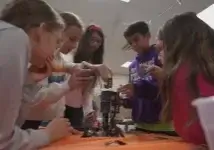How QUEST Adventures Boosts Student Engagement & Learning Through an Immersive Approach
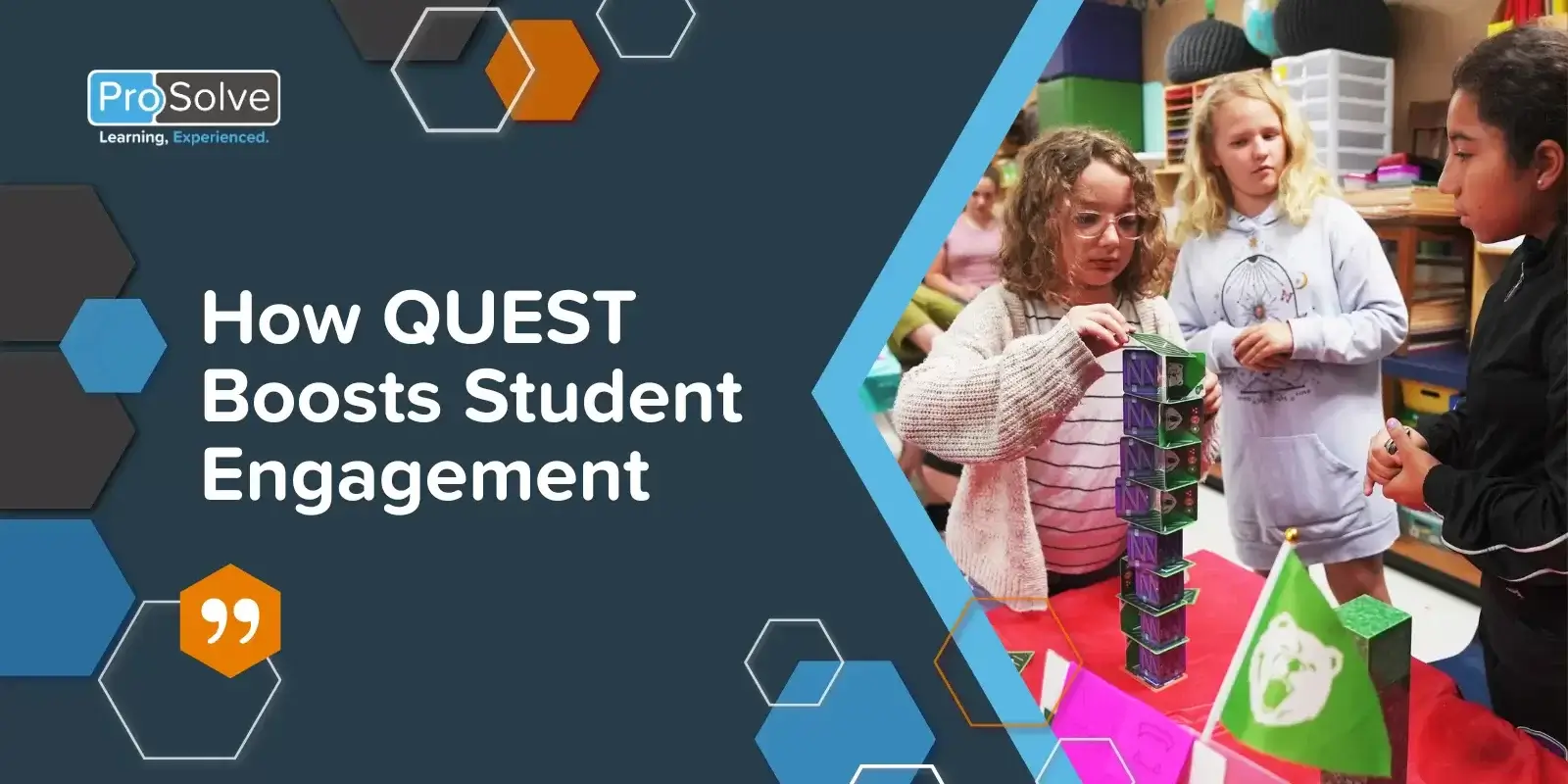
Immersive Experiences are a foundational component of the Learning, Experienced Model and our approach to education. We'll dive into how this component applies to QUEST and how it can help you unlock student success in out-of-school time.
In QUEST, students are immersed in a simulated world where they must work in teams to survive, manage resources, and compete in challenges, building vital SEL skills and applying core academic skills.
The immersive experience allows students to fully engage in the storyline, scenarios, and problem-solving puzzles in a way that more traditional teaching approaches cannot. A national study found that while lectures and reading produce only 5% to 10% learning retention rates, an immersive experience can result in 75% retention.
Key Benefits of Immersive Learning Within QUEST
- Students authentically build and apply SEL skills
- Collaboration leads to more meaningful learning experiences and stronger social connections
- Immersion reframes learning as skill mastery
- Purposeful play engages learners to builds problem-solving skills
How QUEST Leverages Immersive Learning to Build and Apply SEL Skills
The exciting storyline and relatable characters at the heart of QUEST enable learners to build a stronger emotional connection with their learning material, while also building empathy by putting themselves in the shoes of fictional characters.
Additionally, the simulated world provides a context for them to actually apply their social-emotional learning (SEL) skills in real-time. This is in contrast to more traditional SEL curricula, which rely on learners being able to make connections to previous or imagined future experiences.
Within the immersive environment of QUEST, the decisions and choices students make have real consequences on their gameplay, giving them a sense of purpose, but without the fear of real life consequences. Having the power and autonomy to shape their experiences can help to boost students’ self-esteem and to position them as active participants in their learning.
“Our students keep telling me when they leave to go home they can’t wait to come back the next day to get back into the world of QUEST. All I hear about is teachers asking if they can do it again and students wanting to know when they can do it next.”
Michael Griffin, Director of Expanded Learning
Teamwork Enhances the Learning & Engagement
Collaborating in teams and building a sense of team pride is central to the QUEST experience. As they work on challenges within QUEST, each team shares a single device, prompting students to engage meaningfully with one another and to learn to come to a consensus before making important decisions.
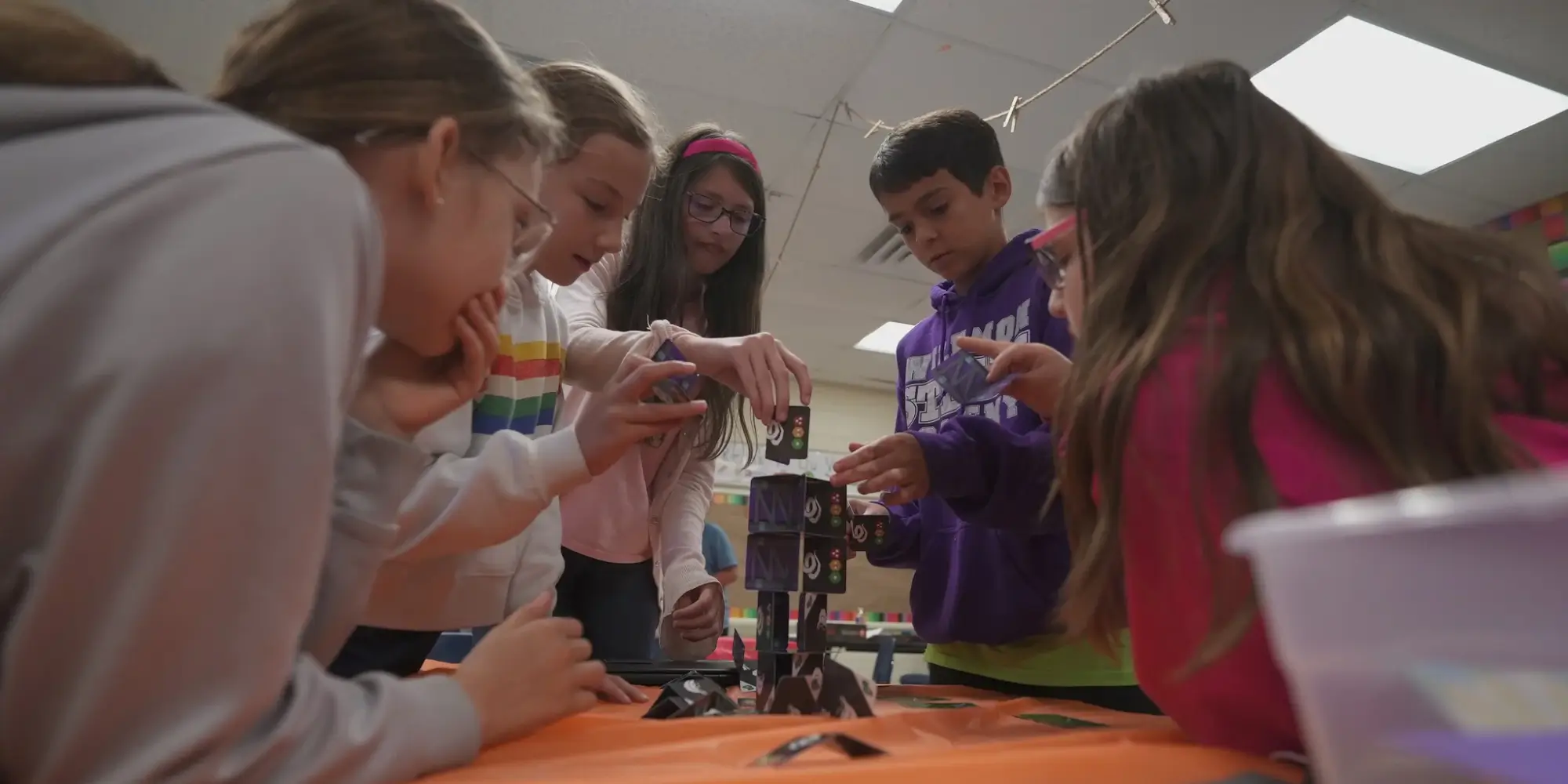
This team structure helps students to build authentic connections, especially in situations (including larger summer camps and after-school programs), where students may not already know each other and risk falling through the cracks socially. The immersive environment also creates a healthy sense of competition that boosts engagement and motivation, allowing teams to play “against” each other as they pursue their goals.
Furthermore, research shows that learning experiences that are collaborative and student-owned lead to deeper learning. In the collaborative process, team members benefit from the knowledge and diverse skill sets of others to build shared learning experiences and hone their skills.
Fresno USD used QUEST to cultivate teamwork & collaboration with great results including:
- 77% of students learned that collaboration and communication is helpful
- 83% of students felt comfortable talking to their teammates
- 84% of students valued the ideas and skills their teammates had
Immersion Reframes Learning as Skill Mastery
A major benefit of immersive learning is that students can begin to view their learning as skill mastery, rather than as something they must do to pass a test. In the simulated environment of QUEST, there is always a clear motivation and reward for achieving skill mastery or “leveling up.”
QUEST takes the natural feeling of reward that comes with skill mastery and gamifies it with tangible rewards that include “collectibles” and tokens for students to earn. Pairing gamified rewards with learning creates excitement and offers increased motivation for achieving goals.
Introducing gamification to an immersive learning experience enables students to see their advancement (and skill mastery) in a clear and tangible way. Being able to recognize their progression (through tracking their scores and in-game rewards) fosters a meta-skill – the skill of learning new skills.
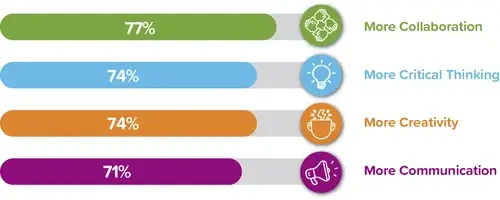
Purposeful Play Builds Problem-Solving Skills
While the education system emphasizes purposeful play for early learners and even posits that playtime, drawing, and listening to stories constitute real learning, as students get older, a sense of play and creativity are gradually separated from the concept of learning. QUEST transforms classrooms by re-centering fun and play as the vehicle for learning.
QUEST combines immersive learning with gamification to engage students with an experience that increases their enjoyment as well as their desire to achieve goals. The narrative, which frequently places students in situations where they must achieve something in a race against the clock, lends their problem-solving a sense of urgency and importance.
When students are tasked with solving simulated problems in order to progress in the game, their engagement is immediately boosted, along with their confidence to manage problems in the real world.
At Anaheim ESD, 92% of students felt their problem-solving skills were enhanced through QUEST's gamified experience.
A lot of times we tell kids this is what you’re learning, this is why you’re learning it. You need to read this passage, answer this questions which is great and they need that but QUEST gives them an opportunity to kind of explore and making their own meaning out of what it is they are finding. We’re able to work with each other, they’re able to make mistakes and kind of learn from those mistakes and figure out how they want to go forward."
Cory Robertson, Vice Principal Lincoln Elementary
QUEST is Age-Appropriate and Research-Based
As students proceed through a season of QUEST and through progressive seasons, the difficulty gradually increases to meet their increased skill level. Ultimately, this progression keeps students motivated, engaged, and returning to play episode after episode with their teammates.
QUEST is a research-based SEL Curriculum that is ESSA Level IV certified.
Explore the Learning Model and dive into the research >

